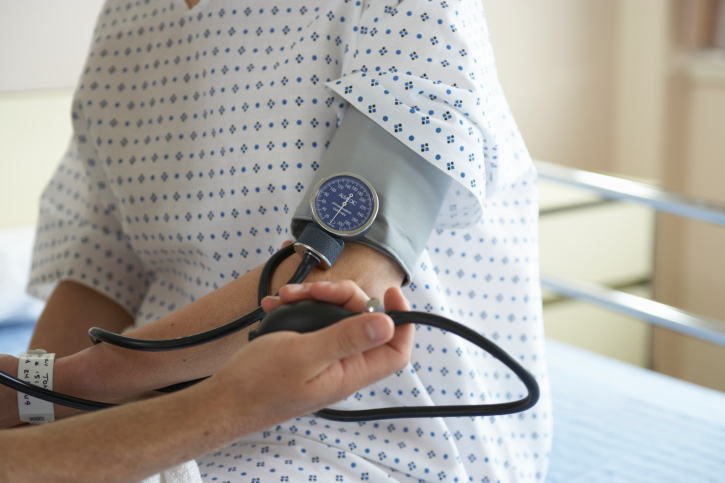The Heart Healthy News Brief: November 10 to 16, 2014
Compiled and edited by Staci Gulbin MS, MEd, RD, LDN
Early signs of heart disease seen in obese youth
 It is never too early to get your health on track. A recent study found that overweight and obese youth with no diseases and taking no medicines showed early risk factors for heart disease. Compared with normal weight youth, overweight and obese children had higher blood pressure, higher cholesterol readings, higher fasting blood glucose and insulin levels, lower “good” HDL cholesterol, and higher “bad” LDL cholesterol. Overweight and obese youth also showed signs of thickness of the left ventricle in their heart, which is a risk factor for heart disease in adults. The best way to prevent these problems in your children is to provide healthy foods, encourage them to stay active, and be a good role model.
It is never too early to get your health on track. A recent study found that overweight and obese youth with no diseases and taking no medicines showed early risk factors for heart disease. Compared with normal weight youth, overweight and obese children had higher blood pressure, higher cholesterol readings, higher fasting blood glucose and insulin levels, lower “good” HDL cholesterol, and higher “bad” LDL cholesterol. Overweight and obese youth also showed signs of thickness of the left ventricle in their heart, which is a risk factor for heart disease in adults. The best way to prevent these problems in your children is to provide healthy foods, encourage them to stay active, and be a good role model.
Read more . . .
Brain images can predict heart disease risk
 A new review of studies using brain imaging revealed that those with heart disease risk factors had changes in their brain structure. A reduced brain volume was seen in those that were obese, those with high blood pressure, and those with high cholesterol. Blood flow to the brain was reduced in those with high blood pressure and high blood fat, or triglyceride levels. Also, the brain was lower functioning in those that had high cholesterol or were obese. People with multiple risk factors for chronic disease, such as high blood pressure, high cholesterol, obesity, low HDL cholesterol, and elevated fasting glucose (also known as metabolic syndrome), had lowered cognitive functioning. By eating healthy and staying active, you are not only keeping your body healthy, but keeping your mind sharp and young for years to come.
A new review of studies using brain imaging revealed that those with heart disease risk factors had changes in their brain structure. A reduced brain volume was seen in those that were obese, those with high blood pressure, and those with high cholesterol. Blood flow to the brain was reduced in those with high blood pressure and high blood fat, or triglyceride levels. Also, the brain was lower functioning in those that had high cholesterol or were obese. People with multiple risk factors for chronic disease, such as high blood pressure, high cholesterol, obesity, low HDL cholesterol, and elevated fasting glucose (also known as metabolic syndrome), had lowered cognitive functioning. By eating healthy and staying active, you are not only keeping your body healthy, but keeping your mind sharp and young for years to come.
Read more . . .
Stroke patients may be missing the mark on healthy cholesterol
 Having high cholesterol is a well-known risk factor for heart disease. But did you know that it is just as important that your “good” HDL cholesterol be above 60 mg/dL and your “bad” LDL cholesterol be below 100 mg/dL? A recent study found that of a group of patients that had a stroke in the past, over half of them had high levels of LDL cholesterol. Of those who were recently admitted to the hospital with a stroke, over one-third of them had high LDL levels. This study shows that those who have a stroke should be on medicines to lower their LDL cholesterol to help prevent future stroke. It is also suggested that more counseling on healthy eating and physical activity would be helpful in stroke risk reduction.
Having high cholesterol is a well-known risk factor for heart disease. But did you know that it is just as important that your “good” HDL cholesterol be above 60 mg/dL and your “bad” LDL cholesterol be below 100 mg/dL? A recent study found that of a group of patients that had a stroke in the past, over half of them had high levels of LDL cholesterol. Of those who were recently admitted to the hospital with a stroke, over one-third of them had high LDL levels. This study shows that those who have a stroke should be on medicines to lower their LDL cholesterol to help prevent future stroke. It is also suggested that more counseling on healthy eating and physical activity would be helpful in stroke risk reduction.
Read more . . .
Women found to respond slower to heart attack symptoms
 A recent study has shown that women are one and a half times more likely to ignore the symptoms of a heart attack, such as chest pain, exhaustion, and strained breathing, than men. Men were quicker to respond to the six stages towards acceptance of symptoms: uncertainty of symptoms, denial of symptoms, asking the opinion of family or friends, realizing symptoms are severe, seeking medical help, and accepting the symptoms. It is suggested that women are more likely to ignore symptoms because they think that men get heart attacks more than women, and they tend to put the needs of others before their own. So if you start to feel what seems to be a muscle ache, severe indigestion, or you have a hard time catching your breath, seek medical help as soon as possible so you can prevent a heart attack.
A recent study has shown that women are one and a half times more likely to ignore the symptoms of a heart attack, such as chest pain, exhaustion, and strained breathing, than men. Men were quicker to respond to the six stages towards acceptance of symptoms: uncertainty of symptoms, denial of symptoms, asking the opinion of family or friends, realizing symptoms are severe, seeking medical help, and accepting the symptoms. It is suggested that women are more likely to ignore symptoms because they think that men get heart attacks more than women, and they tend to put the needs of others before their own. So if you start to feel what seems to be a muscle ache, severe indigestion, or you have a hard time catching your breath, seek medical help as soon as possible so you can prevent a heart attack.
Read more . . .
Aspirin may help reduce risk of heart disease
 You may remember seeing commercials about people taking aspirin to help them ease aches, pains, and to prevent heart attacks. In response, however, you may not have reached for an aspirin in the morning with your daily vitamins, or may not have had your doctor tell you to start taking an aspirin daily. However, along with healthy eating and staying active, recent reports have suggested that those men and women between 50 and 65 years of age who take a daily low-dose aspirin for ten years and have a few heart disease risk factors such as high blood pressure or being overweight, may reduce their risk of heart attack or stroke by about one-tenth. Therefore, the next time you visit your doctor, ask them if taking a daily low-dose aspirin is right for you to prevent heart attack or stroke.
You may remember seeing commercials about people taking aspirin to help them ease aches, pains, and to prevent heart attacks. In response, however, you may not have reached for an aspirin in the morning with your daily vitamins, or may not have had your doctor tell you to start taking an aspirin daily. However, along with healthy eating and staying active, recent reports have suggested that those men and women between 50 and 65 years of age who take a daily low-dose aspirin for ten years and have a few heart disease risk factors such as high blood pressure or being overweight, may reduce their risk of heart attack or stroke by about one-tenth. Therefore, the next time you visit your doctor, ask them if taking a daily low-dose aspirin is right for you to prevent heart attack or stroke.
Read more . . .

